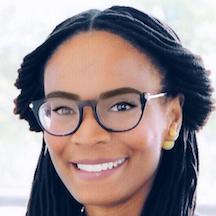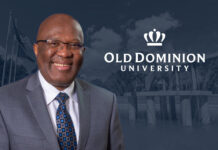 A new study led by Helene Vilme, a social scientist in the department of population health sciences at the School of Medicine of Duke University in Durham, North Carolina, finds that students at North Carolina’s 10 historically black colleges and universities face limited options for finding healthy food to buy at stores within a 5-mile radius of their campuses.
A new study led by Helene Vilme, a social scientist in the department of population health sciences at the School of Medicine of Duke University in Durham, North Carolina, finds that students at North Carolina’s 10 historically black colleges and universities face limited options for finding healthy food to buy at stores within a 5-mile radius of their campuses.
The study found that more than two-thirds of the food and beverage retailers surrounding each of the 10 campuses fall into an “unfavorable” category for offering good nutritional options – meaning they primarily sell processed snack foods, sweets, alcohol, sugary drinks, and other food products that do not necessarily contribute to a healthy diet.
The study evaluated retail food environments within a 5-mile radius, 15-minute walking distance, and 15-minute driving distance of North Carolina’s 10 HBCUs. Overall, 332 stores within a 15-minute drive of the campuses were classified as “favorable” for selling healthy food and drink options, compared to 1,082 stores that were classified as “unfavorable.” Convenience stores, liquor stores, and bakeries or candy shops were collectively three times more common near HBCU campuses than supermarkets, health food stores, and produce markets.
“Interventions to improve food environments surrounding these HBCUs are needed,” said Dr. Vilme.
Dr. Vilme holds bachelor’s degrees in psychology and French, a master’s degree in pharmacy, and a doctoral degree in public health, all from Florida A&M University. She also earned a master of public health degree at the Univerity of South Carolina.
The full study, “Using Geographic Information Systems to Characterize Food Environments Around Historically Black Colleges and Universities: Implications for Nutrition Interventions,” was published on the website of the Journal of American College of Health. It may be accessed here.











Are you kidding me Helene! Your research is flawed on two different streams:1) It indirectly perpetuates this long held negative stereotypes about HBCUs as “lacking this or that”, and 2) the lack of “favorable food”near HBCUs is due to decades of NC local and statewide institutional and structural racism under the guise of benign neglect economic development policies near HBCUs. That said Helene, what’s the probability that you don’t live anywhere NCCU is located? We wonder why!
Brett, neither of your “research streams” — i.e., the existence of prejudicial stereotypes surrounding HBCUs and the reality of structurally racist economic development policies near HBCUs — undermines the reality of the “food deserts” found in her research. Indeed, these two “streams,” and in particular the second stream, essentially CONFIRM her findings, with the second stream explicating WHY the food deserts exist.
No need for the emotive rants. You clearly understand my points and anyone else with an inkling of intelligence. I find it very interesting and even borderline hypocritical that you have so-called Black academics why conduct research on the “Black community” pontificating as if they love all the while teaching at PWIs and domiciling in gated White communities. Give me a break Eli! By the way Eli, what country do you hail from?